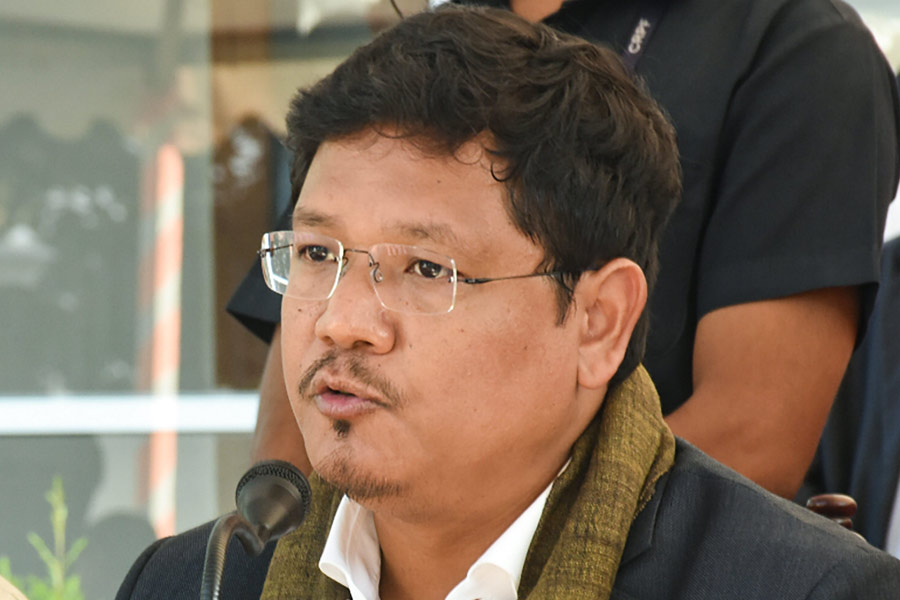The chief minister of Meghalaya, Conrad K. Sangma, is pulsating with excitement on social media. “I just want to inform you that the legendary Bryan Adams will be coming to Shillong, the rock capital of India, on the tenth of December and performing at the JN Stadium. We all love music and this concert is another testament of that love for music,” he exults.
Meghalaya has indeed been an incubator of musical talent, from soul-stirring indigenous tunes to the more popular fusion and Western music. On being asked for details, however, Sangma declined comment. The state is a popular tourist destination at this time of the year, from when it holds the annual Autumn Festival to the bracing winter when the Yuletide spirit casts its warm incandescence.
Since Sangma was in Delhi last week, speculation was rife on whether he would discuss the implementation of the inner-line permit with the Centre. The Khasi Students Union had warned the government that it would “impose ILP on its own” since the political leadership has not proactively pursued the passing of the ILP resolution in the assembly five years ago. The KSU president, Lambokstarwell Marngar, said it would “continue its drive against illegal immigrants in various localities and villages.” Referring to the Meghalaya Residents Safety and Security Act, 2016 which aims to deal with the issue of influx and illegal migrants, he added: “The state government has put the MRSSA 2016 in the cupboard. We want an answer from the state government as to when it is going to implement this important Act.”
In July, scores of tourists were turned back as the KSU and Federation of Khasi-Jaintia and Garo People stopped vehicles coming from Assam towards Sohra (Cherrapunji) and Dawki. The KSU had erected an ILP check-gate at Pahammawlein village along National Highway 6 in the Ri-Bhoi district. Prior to that, the Hynniewtrep National Youth Federation stopped Assam-registered tourist taxis at Umtyngngar, 23 kilometre from the state capital. Although the situation eased after a month, local residents like homestay owners and others subsisting on tourism had been irrevocably impacted.
On Saturday, the All-Khasi Meghalaya Tourist Taxi Association flayed the Meghalaya government for failing to develop revenue-generation mechanisms in the state. It was particularly critical of the tourism minister, Paul Lyngdoh, who had highlighted Meghalaya’s dependence on Guwahati airport, railway station and Assam’s vehicles catering to tourists headed for his state. His acknowledgement of Assam’s role in revenue generation in the tourism sector also drew flak, with the members resorting to a weeklong black flag protest.
Xenophobic passions and paranoia over ‘outsiders’ are abiding causes of conflict in the Northeast. States bordering countries like Bangladesh and Myanmar are prone to unabated influx, while smaller ones carved out of Assam have perennial boundary-related issues. Ethnic concerns are rarely addressed. A case in point is the prevailing unrest in Manipur since March last year. There is simmering tension in Tripura that may soon escalate to a situation beyond redemption.
Why do our elected representatives not strike at the root of problems? Are the lure of power and the perks of office so ingrained that resolving conflicts invariably takes a back seat? What is worse, sometimes the resolution is deliberately kept at bay because corruption and its associated ‘benefits’ comprise a cottage industry that serves politicians at the cost and unmitigated misery of the common man. That is why camouflaging the rot with an occasional concert or the olive branch of insincere ‘peace talks’ has never stood the test of time. It is time for the electorate to unite against spineless abusers of power.











